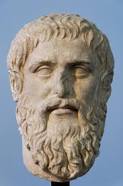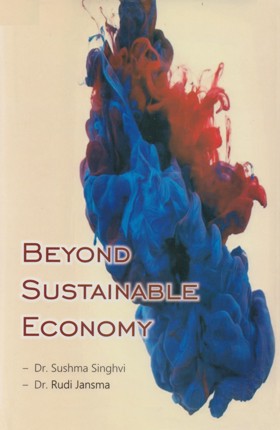[1] Socrates:
Let us then consider, first of all, what will be their [the common people's Ed.] way of life... Will they not produce corn, and wine, and clothes, and shoes, and build houses for themselves? And when they are housed, they will work, in summer, commonly, stripped and barefoot, but in winter substantially clothed and shod. They will feed on a barley-meal and flour of wheat, baking and kneading them, making noble cakes and loaves; these they will serve up on a mat of reeds or on clean leaves, themselves reclining the while upon beds strewn with yew or myrtle. And they and their children will feast, drinking of the wine which they have made, wearing garlands on their heads, and hymning the praises of the gods, in happy converse with one another. And they will take care that their families do not exceed their means; having an eye to poverty or war.
Glaucon:
But you have not given them a relish to their meal.
Socrates:
True, I had forgotten; of course they must have a relish-salt, and olives, and cheese, and they will boil roots and herbs such as country people prepare; for a dessert we shall give them figs, and peas, and beans; and they will roast myrtle-berries and acorns at the fire, drinking in moderation. And with such a diet they may be expected to live in peace and health to a good old age, and bequeath a similar life to their children after them.
Glaucon:
Yes, Socrates, and if you were providing for a city of pigs, how else would you feed the beasts?
Socrates:
But what would you have, Glaucon?.
Glaucon:
Why, you should give them the ordinary conveniences of life. People who are to be comfortable are accustomed to lie on sofas, and dine off tables, and they should have sauces and sweets in the modern style.
Socrates:
Yes, now I understand: the question which you would have me consider is, not only how a State, but how a luxurious State is created; and possibly there is no harm in this, for in such a State we shall be more likely to see how justice and injustice originate. In my opinion the true and healthy constitution of the State is the one which I have described. But if you wish also to see a State at fever heat, I have no objection. For I suspect that many will not be satisfied with the simpler way of life. They will be for adding sofas, and tables, and other furniture; also dainties, and perfumes, and incense, and courtesans, and cakes, all these not of one sort only, but in every variety; we must go beyond the necessaries of which I was at first speaking, such as houses, and clothes, and shoes: the arts of the painter and the embroiderer will have to be set in motion, and gold and ivory and all sorts of materials must be procured.
Glaucon:
True.
Socrates:
Then we must enlarge our borders; for the original healthy State is no longer sufficient. Now the city will have to fill and swell with a multitude of callings which are not required by any natural want; such as the whole tribe of hunters and actors, of whom one large class have to do with forms and colors; another will be the votaries of music poets and their attendant train of rhapsodists, players, dancers, contractors; also makers of divers kinds of articles, including women's dresses. And we shall want more servants. Will not tutors be also in request, and nurses wet and dry, tire women and barbers, as well as confectioners and cooks; and swineherds, too, who were not needed and therefore had no place in the former edition of our State, but are needed now? They must not be forgotten: and there will be animals of many other kinds, if people eat them.
Glaucon:
Certainly.
Socrates:
And living in this way we shall have much greater need of physicians than before?
Glaucon:
Much greater.
Socrates:
And the country which was enough to support the original inhabitants will be too small now, and not enough?
Glaucon:
Quite true.
Socrates:
Then a slice of our neighbors' land will be wanted by us for pasture and tillage, and they will want a slice of ours, if, like ourselves, they exceed the limit of necessity, and give themselves up to the unlimited accumulation of wealth?
Glaucon:
That, Socrates, will be inevitable
Socrates:
And so we shall go to war, Glaucon. Shall we not?
Glaucon:
Most certainly, he replied.
Socrates:
Then without determining as yet whether war does good or harm, thus much we may affirm, that now we have discovered war to be derived from causes which are also the causes of almost all the evils in States, private as well as public.
Glaucon:
Undoubtedly.
Socrates:
And our State must once more enlarge; and this time there will be nothing short of a whole army, which will have to go out and fight with the invaders for all that we have, as well as for the things and persons whom we were describing above.
Glaucon:
Why? Are they not capable of defending themselves?
Socrates:
No, not if we were right in the principle which was acknowledged by all of us when we were framing the State: the principle, as you will remember, was that one man cannot practice many arts with success.
 Dr. Rudi Jansma
Dr. Rudi Jansma
 Plato
Plato
